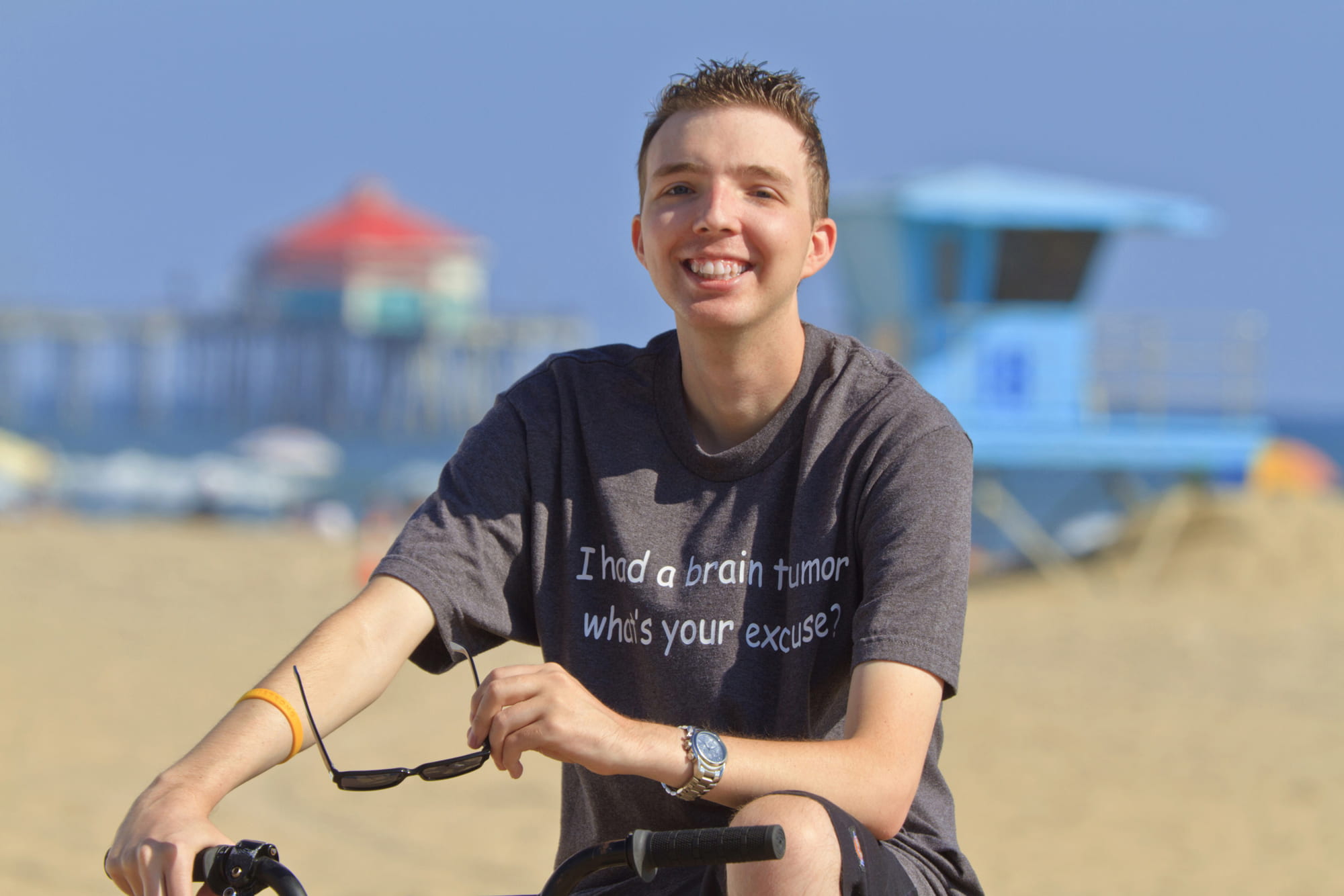From fear to hope
Tom Fox is looking forward to college and a career after UC Irvine neuro-oncologists helped him battle brain cancer.

The pain in Tom Fox’s head was excruciating, impairing his vision and doubling him over with uncontrollable nausea when he was finally admitted to a community hospital in Orange County.
Doctors drained fluid that had been building up for months in the 19-year-old’s skull, but they told his parents they weren’t able to treat what caused it: a tumor lodged in the deepest recesses of his brain. Take him home, make him comfortable and get him to the best brain tumor experts you can find, they told Steve and Mary Fox.
Research turned up several specialists across the state and country, but the care and concern Mary Fox encountered on the telephone drew the family to UC Irvine’s Chao Family Comprehensive Cancer Center, Orange County’s only National Cancer Institute-designated comprehensive cancer center. Two weeks later, the center’s brain tumor team met with the Fox family.
Neuro-oncologist Dr. Daniela Bota said the sausage-shaped growth pressing on Tom Fox’s pineal gland and brain stem was a germinoma, a rare type of tumor that responds well to treatment.
Germinomas are germ cells left over from fetal development. They often migrate into the ovaries or testes, usually emerging in teenagers and young adults. Of all the tumors typically found near the pineal gland, germinomas are among the most common, but they can be hard to diagnose.
“She was sure she could get rid of it,” Fox says of Bota. “She said it was going to be tough but that we would get it. That was cool.”
Fox, now 21, is in remission. “They tell me there’s a one-in-a-million chance of it coming back,” he says. It wasn’t an easy journey, but he credits his UC Irvine doctors and nurses for his new lease on life.
The cancer center at UC Irvine Medical Center in Orange is among only a handful in California with a multidisciplinary team of specialists equipped to treat tumors in this delicate area of the brain, which controls vision, appetite, motor function and memory.
On April 23, 2009, neurosurgeon Dr. Mark Linskey performed a stereotactic biopsy, a procedure requiring exceptional skill to extract bits of the 1-inch tumor at the center of Fox’s brain. Dr. Ronald Kim, one of the region’s few neuropathologists, quickly identified the growth as a germinoma. This definitive diagnosis enabled Bota to devise an aggressive treatment regimen. In May 2009, Fox began his first round of intensive chemotherapy.
“Tommy needed to stay in the hospital four different times over four months,” says Bota, who co-directs the cancer center’s Comprehensive Brain Tumor Program. “We had to support him with blood platelets.” Radiation oncologist Dr. Jeffrey V. Kuo oversaw the six weeks of radiation treatments that followed.
Slowly, Fox’s hair began to grow back, and he started to put on weight. With the help of UC Irvine trauma psychiatrist Dr. Andre Novac and the cancer center’s brain tumor support program, the young man continues to recover from what Bota calls “the equivalent of going to war.”
She is elated by Fox’s progress. “We knew we had a great chance for success,” she says. “But it took all of our specialists working together to achieve these results.”
When he returns to college in the coming months, Fox plans to study for a career in medicine, specifically neuro-oncology. “I would love to help other brain tumor patients,” he says.